FELLOWSHIP LOGISTICS
Learn more about the nuts and bolts of the DFI.
Fellowship Eligibility
The DFI is open to American/Canadian Jews between the ages of 22-30. (To be eligible, one must be 22, but not yet 31 prior to August 1 of the Fellowship year.) Please note that the DFI will not make exceptions to this or other eligibility requirements.
Non-American/Non-Canadian citizens may be eligible for the DFI — with prior approval of the DFI Director. Candidates must be/have been residents of the U.S., having graduated from an American high school and/or an American college/university, and must intend to reside permanently in the U.S. Non-American/Non-Canadian citizens interested in receiving approval for application should contact dfi@dorot.org.
As the purpose of the Dorot Fellowship relates to the American Jewish landscape, candidates who do not intend to reside in North America are not eligible. The Fellowship does not require that candidates have previous experience in Israel, knowledge of Hebrew, or a particular affiliation with any denomination or movement.
Program Dates
The projected program dates are Monday, August 4, 2025 – Thursday, May 28, 2026 (subject to change).
Upon acceptance to the program, Fellows receive a detailed schedule as well as helpful information about living in Israel.
Financial Information
The Fellowship award includes up to $7,000 toward the cost of one’s Personal Learning Program and a $29,500 Living Stipend.
The Living Stipend ($29,500) covers travel to New York City in August for Orientation and Leadership Retreat, subsequent travel to and from Israel and all typical living expenses. In addition to these travel costs, the Living Stipend is what we like to call a “Student-Plus” stipend once Fellows are in Israel. It is designed to cover the cost of living in Tel Aviv or Jerusalem for 10 months, which includes: rent toward a shared apartment, health insurance coverage, therapy, a cell phone plan, groceries, and several nights out a month at restaurants, bars, or cultural events. The Foundation does not augment this amount for Fellows with families.
Living Stipends and Learning Stipends are paid directly to Fellows in installments throughout the year. To our knowledge, the Living Stipend is taxable, but Fellows are encouraged to consult a tax advisor for details. The Foundation does not withhold taxes from Fellowship payments.
All expenditures from the Learning Stipend must be pre-approved and properly documented, in accordance with the Fellowship Contract (provided to Fellows upon acceptance to the program).
Food and transportation during all group convenings (Community Days, Seminars, Retreats, etc.) are covered by the Foundation.
Insurance Information
Dorot Fellows are required to carry Israeli health insurance. Please note that pre-existing medical conditions are often not included in coverage by Israeli health insurance companies. As it is necessary for Fellows to be sufficiently covered, it may be necessary for those with pre-existing medical conditions to retain North America-based health insurance coverage.
Travel Policy
Within Israel
As immersion in Israeli society is a primary goal of the Fellowship, Fellows are expected to spend the full year in Israel. Trips throughout Israel are encouraged. Trips must not interfere with DFI seminars or community study programs (in whole or in part). Fellows are urged to remain in Israel for all Jewish holidays.
Outside Israel
Fellows may leave Israel for up to 21 days during the Fellowship Period, and are required to provide DFI Educators with advanced written notice of all time that will be spent outside of Israel during the Fellowship Period. Travel to nations with whom the United States does not have diplomatic relations, and those listed by the U.S. State Department as State sponsors of terror, is not permitted.
Palestinian-Administered Territories
The DFI will always take as its first consideration the personal safety and security of the Fellows. With clear U.S. State Department and Israeli Security Services directives as our guide, we maintain a policy which is not based on our political views regarding The Palestinian Territories, but rather one which is designed to ensure the general well-being of the members of our community. A Fellow who is “stranded” for whatever reason in a Palestinian town in the West Bank cannot be physically accessed by our Israeli staff members or, should it become necessary, by the Israeli Security Services. Although Fellows are welcome to study and understand the place of the Palestinians in the regional equation, our first concern will be our Israeli staff’s accessibility to our Fellows at all times.
Travel to nations with whom the United States does not have diplomatic relations, and those listed by the U.S. State Department as terrorist nations, is not permitted. Travel to the Gaza Strip is also not permitted.
Currently, travel to Area A of the West Bank is prohibited.
A Dorot Fellow, with the advance written approval of DFI Staff, may travel to Areas B and C of the West Bank to participate in periodic and temporary experiences relevant to the Israel Learning component of the Personal Learning Program, in which event such approved travel will not count against the 21 days allotted for travel outside of Israel (and such travel may be paid for with the Learning Stipend).
A Dorot Fellow may not have regular or standing commitments to learn or volunteer in Areas B or C of the West Bank. Failure to comply with DFI Travel Policies may forfeit one’s status as a Fellow.
